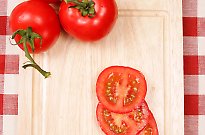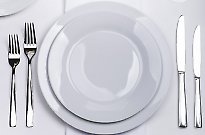
Carrageenan: the secret food additive

Carrageenan is injected into meat for moisture retention, added to soymilk, and you can even find it in some toothpastes, writes Andrea Bentancor
Carrageenan is a food additive that has become ubiquitous in the last few decades. Questions have arisen regarding its safety for the human digestive tract. But is carrageenan inflammatory or just its detractors? And if it is inflammatory, what foods should we avoid?
What is carageenan?
Carrageenans are a group of polysaccharides extracted from rhodophyta, which are edible red seaweeds. For hundreds of years the main source of carrageenan was from the seaweed Chondrus crispus, more commonly known as Irish moss, which grows off the Atlantic coast of Europe and North America. Its culinary use was confined to jelly-like desserts in Ireland and Scotland. But in the last few decades it has gradually crept into every food imaginable all over the world.
Where is it commonly found?
The most common use of carrageenan is as a food additive in processed meats, soy milk, infant formula and dairy or dairy-like desserts such as ice cream, milkshakes, syrup or yoghurt. In some products it is used as a vegan or vegetarian alternative to gelatin. Nowadays, most industrial carrageenan is no longer from Irish moss, but extracted from the North American seaweeds Eucheuma cottonii, Eucheuma denticulatum, Eucheuma spinosum and Gigartina skottsbergii.
There are three types of carrageenans – kappa, iota and lambda – and they are used in various combinations from product to product depending on the desired chemical properties. In addition, there are two classifications of carrageenan by the Australian Therapeutic Goods Administration (TGA): undegraded carrageenan (CGN) and degraded carrageenan (dCGN), or poligeenan, which has a slightly lower weight. It is important to note that undegraded carrageenan is the only type that is permitted for human consumption by the TGA, the US Food and Drug Administration (FDA) and the European Scientific Committee on Food.
Inflammatory properties
Carrageenan came to the attention of the health and nutrition community in the late 1990s and early 2000s when numerous previous studies were unearthed that exposed its carcinogenic effects. Subsequently, Dr Joanne K. Tobacman, Associate Professor of Clinical Medicine at the University of Illinois, published a comprehensive review of 45 publicly funded studies concluding that “the potential role of carrageenan in the development of gastrointestinal malignancy and inflammatory bowel disease requires careful reconsideration of the advisability of its continued use as a food additive.” The food industry swiftly responded by funding a study that criticised some of the previous studies’ methodologies and highlighted that many of them were on poligeenan, which is not used as a food additive.
Throughout the following years, previous studies on baboons, rhesus monkeys, hamsters and rats were revisited and analysed to see if they could shed new light on the question. It became clear that poligeenan was most definitely carcinogenic, meaning that it accelerates cancer and tumour growth. Undegraded carrigeenan, on the other hand, has only ever been shown to accelerate cancer formation in synergy with another known carcinogen, such as poligeenan. Human studies on carrageenan have been limited for obvious ethical reasons. Nonetheless, studies from the American Journal of Physiology show that carrageenan can increase the expression of pro-inflammatory transcription factors in human intestinal epithelial tissue. These studies point to startling outcomes for undegraded (i.e. food grade) carrageenan’s effects on human tissue, yet its mode of action in an actual human intestinal tract may be vastly different. Nonetheless, they certainly warrant cause for further investigation. Another concern that has been raised is that undegraded carrageenan may be converted to poligeenan in storage, under heating, and even in the digestive tract due to its acidity and bacterial environment. If this is the case, then alarming levels of a proven carcinogen are currently contaminating a huge number of food products we are eating every day.
Subsequent developments
On the political side, Tobacman filed a petition to the US FDA, requesting that carrageenan be prohibited as a food additive, pointing to numerous studies that showed it “induces inflammation and intestinal neoplasia”. The FDA denied her request. The Cornucopia Institute, a non-profit food safety advocacy body, supported Tobacman’s petition and has since asked the FDA on multiple occasions to re-evaluate their decision. They have also made a regularly updated consumer guide that lists US food products that do not contain carrageenan. In May 2013, the Organic Consumers Association (OCA) also asked the USDA National Organic Program (NOP) to ban the use of carrageenan in all certified organic products, after it recently banned it for use in infant formula. However, the US Department of Agriculture’s National Organic Standards Board will not vote on removing it from organic food products for another three years. Australia will most likely follow the United States’ lead in the outcome of their decision.
As it stands, there is still debate as to whether the undegraded carrageenan in food products is carcinogenic or inflammatory. Experts such as Tobacman and others are staunch advocates of a ban as soon as possible, whereas other experts such as food scientist Dr Joy Dubost and Lona Sandon from the University of Texas are still cautious to condemn. Their belief is that at current levels of consumption, it does not pose a threat to the broader population, although if it causes inflammation or discomfort in a specific patient then they should cease consumption by all means.
The one group of people that most nutritionists and dietitians agree should avoid carrageenan are those suffering from intestinal disorders such as inflammatory bowel disease (IBD) or irritable bowel syndrome (IBS). They are particularly sensitive to any chemicals that may promote inflammation and should avoid carrageenan to be on the safe side.
In Australia, foods containing carrageenan will contain one of the following labels: ‘vegetable gum (407)’, ‘carrageenan gum’, or ‘vegetable gum (carrageenan)’. In the United States, food containing carrageenan will say ‘carrageenan’ on the label and in Europe it will say ‘E407’ or ‘E407a’. For those wanting to avoid carrageenan in the foods they eat, check out Cornucopia’s guide to avoiding organic foods with carrageenan: cornucopia.org/shopping-guide-to-avoiding-organic-foods-with-carrageenan/
Andrea Bentancor has been a registered nurse and certified colon hydrotherapist for the past six years. Andrea treats a large number of patients on a daily basis, particularly assisting sufferers of digestive disorders such as irritable bowel syndrome (IBS), chronic constipation and Crohn’s disease. innercleansingclinics.com.au


